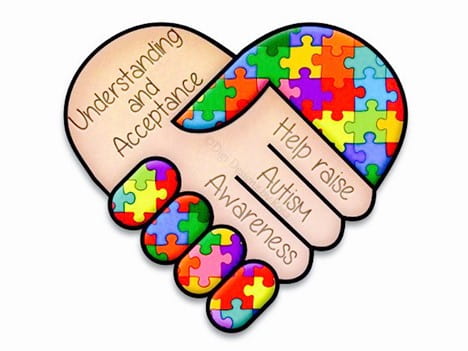Light it up Blue for World Autism Awareness Month
Published 8:21 am Wednesday, April 27, 2022
|
Getting your Trinity Audio player ready...
|
-By: Husna Habib, Special Education Teacher/ IEP Case Manager
Sumter County High School
Did you know? April 2 is World Autism Awareness Day, and April is National Autism Awareness Month! Since many of you are now aware of Autism Spectrum Disorder, let’s know more in detail about ASD, its causes and its early signs & identification.
Let’s increase autism acceptance in our communities by spreading awareness and lending support in the form of information resources to promote peer acceptance, sibling support, safety, and more.
Raising a child is often one of the most challenging and joyous events in a parent’s life. Watching your child grow and develop is a source of delight. However, some parents become concerned when their child appears to develop differently than others. At times, parents may worry about the possibility of autism spectrum disorder, or ASD.
Autism or Autism spectrum disorder (ASD, sometimes called autism) is a developmental disorder that affects how people socially interact, behave, learn, and communicate. People may exhibit repetitive behaviors or narrow, obsessive interests. Not everyone with ASD will have all behaviors and its impact can range from mild to disabling. Learning and thinking can range from extremely gifted to needing severe help. ASD is called a developmental disorder since symptoms generally appear in the first two years of life. Both children and adults can have ASD. Scientists aren’t certain what causes ASD, but it’s likely that both genetics and environment play a role. The term ASD now refers to several conditions that used to be diagnosed separately. A team of healthcare professionals with experience may be involved in diagnosing ASD. Children should be screened for developmental delays during periodic checkups and specifically for autism at 18- and 24-month well child visits.
The exact cause of ASD is unknown. The most current research demonstrates there’s no single cause. According to the National Institute of Neurological Disorders and Stroke (NINDS)Trusted Source, both genetics and environment may determine whether a person develops ASD. However, multiple sources, old and new trusted sources, have concluded that vaccines do not cause ASD.
Let’s look into the signs and symptoms of ASD. Symptoms of ASD typically become clearly evident during early childhood, between ages 12 and 60 months. However, symptoms may also appear earlier or later. Early symptoms may include a marked delay in language or social development.
The DSM-5 divides symptoms of ASD into two categories:
- problems with communication and social interaction
- restricted or repetitive patterns of behavior or activities
To be diagnosed with autism, a person must experience symptoms in both of these categories.
- Problems with communication and social interaction
ASD can involve a range of issues with communication, many of which appear before age 5. Here’s a general timeline of what this might look like:
- From birth: trouble maintaining eye contact
- By 9 months: not responding to their name
- By 9 months: not displaying facial expressions reflective of their emotions (like surprise or anger)
- By 12 months: not engaging in basic interactive games, like peek-a-boo or pat-a-cake
- By 12 months: not using (or only using a few) hand gestures, like hand-waving
- By 15 months: not sharing their interests with others (by showing someone a favorite toy, for example)
- By 18 months: not pointing or looking where others point
- By 24 months: not noticing when others appear sad or hurt
- By 30 months: not engaging in “pretend play,” like caring for a baby doll or playing with figurines
- By 60 months of age: not playing turn-taking games, like duck-duck goose
Additionally, autistic children might have trouble expressing their feelings or understanding those of others starting at 36 months. As they age, they might have difficulty talking or very limited speaking skills. Other autistic children might develop language skills at an uneven pace. If there’s a particular topic that’s very interesting to them, for example, they might develop a very strong vocabulary for talking about that one topic. But They might also show signs of hyperlexia, which involves reading beyond what’s expected of their age. Children on the autism spectrum might learn to read earlier than their neurotypical peers, sometimes as early as age 2. But they tend to not comprehend what they’re reading. While hyperlexia does not always accompany autism, research suggests nearly 84 percent of children with hyperlexia are on the spectrum. As they interact with others, autistic children might have difficulty sharing their emotions and interests with others or find it hard to maintain back-and-forth conversation. Nonverbal communication, like maintaining eye contact or body language, might also remain difficult. These challenges with communication can persist throughout adulthood.
- Restricted or repetitive patterns of behavior or activities
In addition to the communication and social issues mentioned above, autism also includes symptoms related to body movements and behaviors.
These can include:
- repetitive movements, like rocking, flapping their arms, spinning, or running back and forth
- lining objects, like toys, up in strict order and getting upset when that order is disturbed
- attachment to strict routines, like those around bedtime or getting to school
- repeating words or phrases they hear someone say over and over again
- getting upset over minor changes
- focusing intently on parts of objects, like the wheel of a toy truck or the hair of a doll
- unusual reactions to sensory input, like sounds, smells, and tastes
- obsessive interests
- Other characteristics
Some autistic people might experience additional symptoms, including:
- delayed movement, language, or cognitive skills
- seizures
- gastrointestinal symptoms, like constipation or diarrhea
- excessive worry or stress
- unusual levels of fear (either higher or lower than expected)
- hyperactive, inattentive, or impulsive behaviors
- unexpected emotional reactions
- unusual eating habits or preferences
- unusual sleep patterns
- exceptional abilities, like musical talent or memory capabilities






